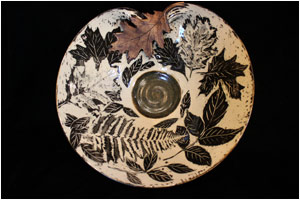1forge noun \ˈfȯrj\
1: a furnace or a shop with its furnace where metal is heated and wrought : smithy
2: a workshop where wrought iron is produced or where iron is made malleable
2forge verb
1: to form (as metal) by heating and hammering
2: to work at a forge
black•smith noun \ˈblak-ˌsmith\
1: a person who makes or repairs things made of iron
from a distinction between black metal (iron) and white metal (tin)
smithy noun \ˈsmi-thē also -thē\
1: the place where a blacksmith works
2: the workshop of a smith
1wrought \ˈrȯt\
1: worked into shape by artistry or effort <carefully wrought essays>
2: elaborately embellished : ornamented
3: processed for use : manufactured <wrought silk>
4: beaten into shape by tools : hammered —used of metals
func•tion•al adjective \ˈfəŋ(k)-shnəl, -shə-nəl\
1: designed to have a practical use
1art \ˈärt, ərt\
1: the conscious use of skill and creative imagination especially in the production of aesthetic objects; also : works so produced
2: works created by artists : paintings, sculptures, etc., that are created to be beautiful or to express important ideas or feelings
3: the methods and skills used for painting, sculpting, drawing, etc.
1re•pous•sé adjective \rə-ˌpü-ˈsā, -ˈpü-ˌ\
1: shaped or ornamented with patterns in relief made by hammering or pressing on the reverse side — used especially of metal
2: formed in relief
1iron noun \ˈī(-ə)rn\
1: a heavy type of metal that is very common, occurs naturally in blood, and is used to make steel and in many products
1steel noun \ˈstēl\
1: commercial iron that contains carbon in any amount up to about 1.7 percent as an essential alloying constituent, is malleable when under suitable conditions, and is distinguished from cast iron by its malleability and lower carbon content

